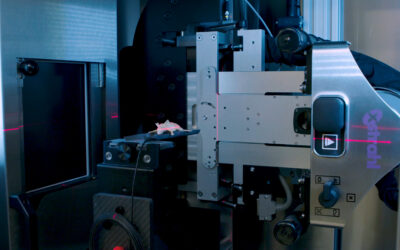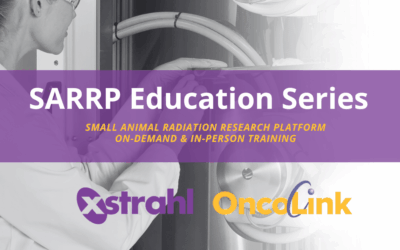Ionizing irradiation is a commonly accepted treatment modality for lung cancer patients. However, the clinical outcome is hampered by normal tissue toxicity and tumor hypoxia. Since tumors often have higher levels of active heat shock protein 90 (Hsp90) than normal tissues, targeting of Hsp90 might provide a promising strategy to sensitize tumors towards irradiation. Hsp90 client proteins include oncogenic signaling proteins, cell cycle activators, growth factor receptors and hypoxia inducible factor-1α (HIF-1α). Overexpression of HIF-1α is assumed to promote malignant transformation and tumor progression and thus might reduce the accessibility to radiotherapy.
Daniela Schilling, Christine Bayer, Wei Li, Michael Molls, Peter Vaupel and Gabriele Multhoff
Download Paper
SPOTLIGHT: Behind the Beam: Tips, Tricks, and Translational Research from the Karolinska Institutet X-ray Irradiation Core Facility
Access the highly anticipated Xstrahl SPOTLIGHT Session, "Behind the Beam: Tips, Tricks, and Translational Research from the Karolinska Institutet X-ray Irradiation Core Facility," on demand now. This essential recording is a must-watch for radiation researchers and...







